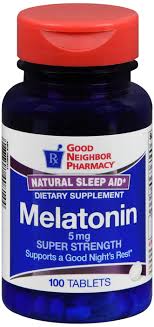Depression: Understanding the Silent Killer
Depression is a mental health disorder that affects millions of people worldwide. It is a serious illness that can lead to significant impairment in daily functioning and quality of life. Despite its prevalence, depression remains a silent killer that often goes undetected and untreated.
What is Depression?
Depression is a mood disorder characterized by persistent feelings of sadness, hopelessness, and loss of interest in activities that were once enjoyable. It can also cause physical symptoms such as fatigue, changes in appetite and sleep patterns, and difficulty concentrating.
Depression can be triggered by a variety of factors such as genetics, life events, chronic stress, and medical conditions. It can affect anyone regardless of age, gender, or background.
The Impact of Depression
Depression can have a significant impact on an individual’s life. It can affect their ability to work or attend school, maintain relationships with family and friends, and engage in daily activities. In severe cases, depression can lead to suicidal thoughts or actions.
Depression also has an economic impact on society. It is estimated that depression costs the global economy over $1 trillion per year due to lost productivity and healthcare expenses.
Treatment for Depression
The good news is that depression is treatable. There are several effective treatments available including medication, psychotherapy, and lifestyle changes such as exercise and healthy eating habits.
It’s important to seek help if you or someone you know is experiencing symptoms of depression. Treatment can improve symptoms and quality of life for those who suffer from this illness.
Preventing Depression
While there is no guaranteed way to prevent depression from occurring, there are steps individuals can take to reduce their risk. These include:
– Maintaining social connections with family and friends
– Practicing stress-reducing techniques such as meditation or yoga
– Engaging in regular physical activity
– Eating a healthy diet
– Getting adequate sleep
Conclusion
Depression is a serious illness that affects millions of people worldwide. It can have a significant impact on an individual’s life and the economy as a whole. However, with proper treatment and prevention strategies, we can reduce the burden of depression and improve the quality of life for those who suffer from it. Remember, seeking help is a sign of strength, not weakness.
Answers to Common Questions About Depression: Coping Strategies, Symptoms, Causes, and Characteristics
- What helps people cope with depression?
- What is in a depression?
- What are the 4 main causes of depression?
- What are the main 3 symptoms of depression?
What helps people cope with depression?
There are several ways people can cope with depression. Here are some strategies that may help:
- Seek professional help: It’s important to seek help from a mental health professional if you’re experiencing symptoms of depression. A therapist or counselor can provide support, teach coping skills, and offer treatment options.
- Medication: Antidepressant medication can be effective in treating depression. It’s important to consult with a healthcare provider about the potential benefits and side effects of medication.
- Exercise: Regular exercise has been shown to improve mood and reduce symptoms of depression. Even a short walk or light activity can be helpful.
- Mindfulness practices: Mindfulness-based practices such as meditation, yoga, or deep breathing exercises can help reduce stress and improve mood.
- Social support: Spending time with loved ones and engaging in social activities can provide emotional support and reduce feelings of isolation.
- Self-care: Taking care of oneself by getting enough sleep, eating a healthy diet, practicing good hygiene, and engaging in enjoyable activities can help improve overall well-being.
It’s important to remember that everyone’s experience with depression is unique, and what works for one person may not work for another. It may take time to find the right combination of coping strategies that work best for each individual.
What is in a depression?
I’m sorry, but I’m not sure what you mean by “what is in a depression?” Could you please provide more context or clarify your question?
What are the 4 main causes of depression?
Depression is a complex illness, and its causes are not fully understood. However, research suggests that there are several factors that can contribute to the development of depression. Here are four main causes of depression:
- Biological factors: Depression can be caused by changes in brain chemistry or function. This can be due to genetic factors, hormonal imbalances, or other medical conditions.
- Environmental factors: Traumatic life events such as loss of a loved one, financial problems, or job loss can trigger depression. Chronic stress from ongoing problems such as relationship issues or work-related stress can also contribute to the development of depression.
- Psychological factors: Negative thought patterns and beliefs about oneself and the world can contribute to depression. Individuals who have low self-esteem, perfectionist tendencies, or a history of trauma may be more susceptible to developing depression.
- Substance abuse: Substance abuse is often linked to depression. Alcohol and drug use can disrupt brain chemistry and lead to depressive symptoms.
It’s important to note that these causes do not necessarily act alone but rather interact with each other in complex ways that increase the risk for developing depression. Additionally, not everyone who experiences these risk factors will develop depression, and some individuals may develop depression without any identifiable risk factors at all.
What are the main 3 symptoms of depression?
The main three symptoms of depression are persistent feelings of sadness, hopelessness or emptiness, loss of interest or pleasure in activities that were once enjoyable, and fatigue or decreased energy. Other symptoms may include changes in appetite and weight, sleep disturbances, difficulty concentrating, feelings of worthlessness or guilt, and recurrent thoughts of death or suicide. It’s important to note that everyone experiences depression differently and may have a unique set of symptoms. If you suspect that you or someone you know is experiencing depression, it’s important to seek help from a mental health professional.



